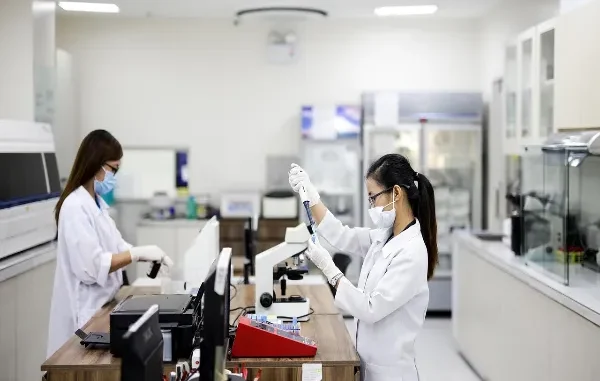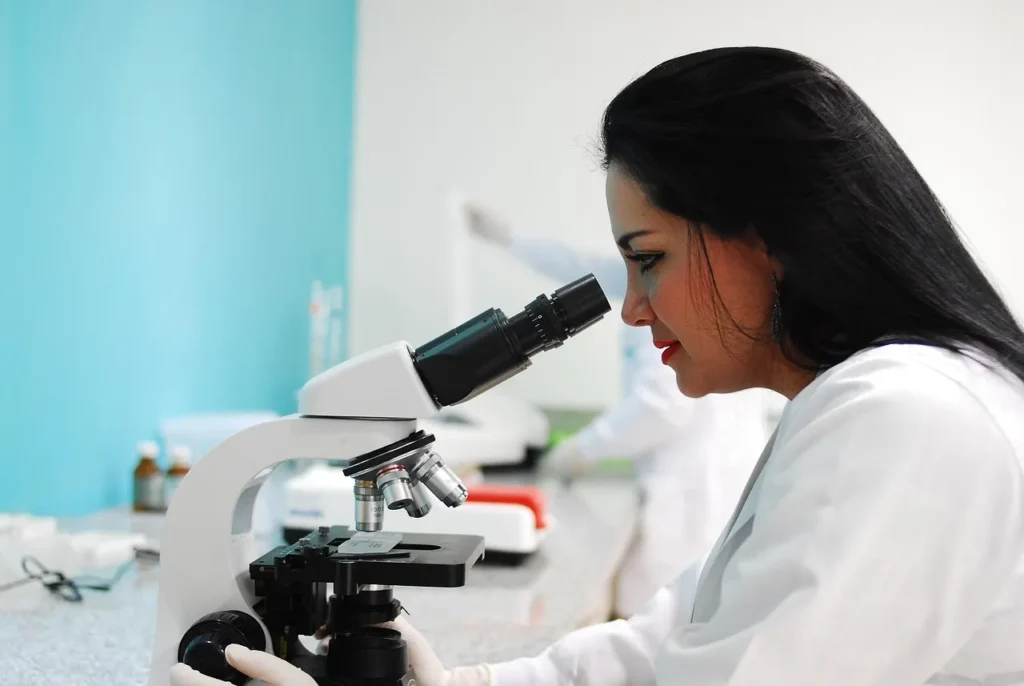
Behind every successful IVF cycle lies not just medical precision but digital reliability. In a world where healthcare is increasingly data-driven, the success of fertility treatments now depends as much on secure systems and information integrity as on clinical expertise. Advanced reproductive technologies are generating immense volumes of patient data genetic profiles, embryo monitoring videos, hormonal analytics, and cryostorage logs, all of which require precision, privacy, and protection.
Clinics led by One of the Best IVF Doctors today operate more like data laboratories than traditional medical facilities. Artificial intelligence, cloud analytics, and digital imaging tools are deeply embedded in every stage of IVF from ovulation tracking and oocyte retrieval to embryo selection and implantation timing. Yet with this digitization comes a crucial responsibility: ensuring that sensitive medical information remains accurate, confidential, and tamper-proof.
To understand why this matters, one only has to look at the broader healthcare ecosystem. Cybersecurity and digital infrastructure failures have repeatedly disrupted hospital operations worldwide, exposing patient data and compromising care quality. In this context, IVF where human life begins under scientific supervision demands an even higher standard of data integrity.
The Digital Revolution Inside the IVF Lab

The IVF lab of today resembles a hybrid of a biotech startup and a precision-engineering studio. Every workstation is digitized, every microscope connected to data capture systems, and every embryo’s journey documented through continuous AI-assisted imaging.
These technologies, such as time-lapse incubators and machine learning algorithms, have dramatically improved success rates by predicting embryo viability more accurately than manual observation ever could. However, they also generate terabytes of sensitive data—visual sequences, metadata, and patient-linked identifiers.
If compromised, even the smallest error or breach could affect clinical decisions. For example, inaccurate digital labeling could result in embryos being mismatched, while unauthorized system access could expose deeply personal reproductive data. Maintaining digital trust is therefore no longer just an IT concern, it’s a clinical mandate.
Secure systems act as the unseen guardians of the IVF process, ensuring that each embryo’s data trail is consistent, verifiable, and unaltered. Encryption, multi-factor authentication, and blockchain-based audit logs are now being adopted in advanced fertility centers to create digital “trust networks” that protect both science and emotion.
Artificial Intelligence and the Ethics of Data Dependence
AI has revolutionized how embryologists evaluate the quality of embryos, detect abnormalities, and predict success rates. Systems trained on massive datasets can now assess subtle morphological features invisible to the human eye. But AI is only as reliable as the data that trains it.
If the source data is incomplete, biased, or corrupted, the algorithm may produce inaccurate predictions, potentially influencing life-changing decisions. In IVF, where couples invest financially and emotionally in each cycle, such risks are profound.
Hence, the industry is now pivoting toward AI transparency and validation frameworks borrowed from the field of secure healthcare analytics. These frameworks audit every dataset used to train IVF algorithms, ensuring it meets accuracy, traceability, and privacy standards. Secure data pipelines not only enhance outcomes but also strengthen ethical accountability in a field already laden with moral complexity.
This intersection of ethics and technology illustrates a broader truth: digital systems in IVF are not just about convenience, they are instruments of responsibility.
Cryostorage, Cloud Systems, and the Safety Paradox
Cryopreservation freezing eggs, sperm, or embryos for future use—is one of IVF’s greatest triumphs. But beneath the liquid nitrogen tanks and biometric locks lies an intricate web of digital monitoring systems. These systems track temperature stability, storage duration, and biological viability around the clock.
A failure in digital alert systems could mean irreversible biological loss. That’s why modern cryobanks integrate IoT-based sensors linked to secure cloud networks that send real-time alerts to embryologists if any deviation occurs.
However, storing such data on interconnected systems introduces new vulnerabilities. Hackers targeting hospital systems for ransom could potentially disrupt these temperature controls, risking embryos’ survival. This paradox where greater connectivity brings both efficiency and exposure underscores the necessity of secure IT frameworks in reproductive medicine.
Advanced fertility clinics in India and abroad are mitigating this risk by employing redundant data architecture and offline fail-safes, ensuring that even during cyberattacks or power failures, the storage environment remains stable and independently operational. These designs take cues from aerospace and biopharmaceutical manufacturing systems, where downtime could mean disaster.
The Blockchain Promise: Immutable Trust in Reproduction

Blockchain technology, often associated with finance, is finding a surprising application in fertility care. In IVF, blockchain creates immutable digital records for every stage of treatment from gamete collection and embryo freezing to final implantation.
This ensures transparency between clinicians, laboratories, and patients. Every transaction (such as an embryo thawing event or genetic screening report) is time-stamped and verified, making it virtually impossible to alter data retroactively. For couples undergoing treatment across multiple clinics or countries, this consistency builds trust and accountability.
Blockchain’s decentralized model also aligns with global data privacy regulations, providing patients with control over who accesses their medical information. Such systems exemplify how secure digital design can directly enhance emotional security, an aspect deeply woven into fertility treatment.
Data-Driven Collaboration: The Future of Connected Fertility
The next frontier of IVF technology will involve cross-clinic data networks that allow fertility centers to share anonymized insights securely. This could accelerate research into genetic causes of infertility, improve drug formulation, and refine embryo grading standards.
But such interconnectedness requires trust. Clinics must adhere to standardized cybersecurity protocols to ensure that patient data is de-identified, encrypted, and ethically shared. This is where the learnings from secure healthcare infrastructures become invaluable.
Just as hospitals are adopting multi-layered defenses against ransomware, IVF centers are now embracing “defense-in-depth” cybersecurity models. These systems combine AI-based anomaly detection, encrypted cloud storage, and regular security audits to maintain resilience against emerging threats.
The result is a new kind of digital fertility ecosystem, one that balances innovation with protection, personalization with privacy.
Why Secure Systems Are Emotional Systems
For couples undergoing IVF, the experience is deeply personal. Every report, image, and embryo represents hope. Ensuring that these digital assets are protected from loss or compromise is not merely a technical necessity, it’s an emotional obligation.
A single breach can erode trust not only in a clinic but in the entire medical system. Conversely, secure digital frameworks build confidence, allowing patients to focus on healing rather than fearing mishandled data. The emotional reassurance that comes from data security often translates into better clinical engagement and decision-making.
This convergence of empathy and encryption, human care and digital protection is what defines the most advanced fertility centers today. It’s no longer enough to perfect the science of conception; clinics must also perfect the safety of the information that guides it.
Conclusion
IVF has entered a new dimension where biology meets cybersecurity. Every embryo, every report, and every digital image is both a medical artifact and a data entity. The doctors and embryologists shaping the future of fertility care are no longer just biologists, they are digital custodians of life’s earliest moments.
As IVF technologies advance toward AI-assisted conception, genomic editing, and cloud-based global fertility collaboration, data protection will remain its invisible heartbeat. The clinics that succeed will be those that recognize digital security as a pillar of ethical medicine, not an afterthought of modernization.
For a broader perspective on how robust system design and secure digital infrastructure are revolutionizing healthcare, explore this article on how secure systems reduce risks in healthcare environments. The lesson is universal: whether safeguarding an embryo or an entire hospital network, the integrity of data defines the integrity of care.






Leave a Reply